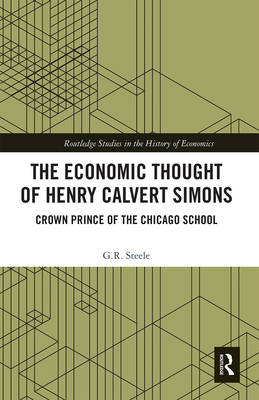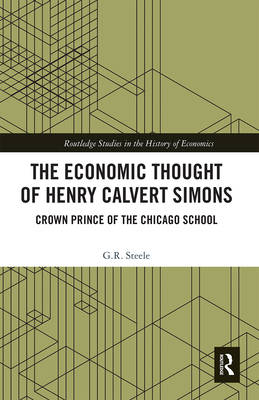
- Retrait gratuit dans votre magasin Club
- 7.000.000 titres dans notre catalogue
- Payer en toute sécurité
- Toujours un magasin près de chez vous
- Retrait gratuit dans votre magasin Club
- 7.000.0000 titres dans notre catalogue
- Payer en toute sécurité
- Toujours un magasin près de chez vous
Description
Drawing on years of research, Gerald Steele delves into the diverse ideas of Henry Simons, a neglected economist whose work in the 1930s on monetary and financial instability is extremely relevant to today's debates about commercial bank credit, the interdependence of fiscal and monetary policy, and financial regulation.
Steele describes the emergence of the first Chicago school of economics and its distinctive difference to the School subsequently associated with the Monetarism of Milton Friedman, and shows how Simons provides the basis for what is now referred to as 'the fiscal theory of the price level' and how this differs from the monetarist attempt to control prices by controlling the supply of broad money.
This book will be of interest to advanced students and researchers of the history of economic thought, economic history, macroeconomics and banking and finance.
Spécifications
Parties prenantes
- Auteur(s) :
- Editeur:
Contenu
- Nombre de pages :
- 192
- Langue:
- Anglais
- Collection :
Caractéristiques
- EAN:
- 9780367667207
- Date de parution :
- 30-09-20
- Format:
- Livre broché
- Format numérique:
- Trade paperback (VS)
- Dimensions :
- 156 mm x 233 mm
- Poids :
- 379 g

Les avis
Nous publions uniquement les avis qui respectent les conditions requises. Consultez nos conditions pour les avis.






